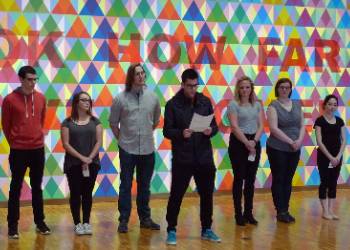101 Professor Sherri Hoffman (session 2, 100% distance learning)
Course Title: Flash Fiction
Course Description: Flash Fiction is the study of the shortest form of fiction. Its essence is an exactness of language. Its form is more defined by conciseness than a specific word count. At its best, it is fine-tuned storytelling honed to a single page or a few short lines in which universal emotion and the strength or frailties of being human are revealed. The workshop structure allows for an active discussion of student work. Readings are a diverse selection of authors as examples of craft and the diversity of voice. Supporting craft materials include essays, film, and excerpts of craft books, which invite the study of language and story reimagining our world in a quick flash.
Readings:
Required reading: (purchase or rent by the first week of class)
The Best Small Fictions 2018, Ed: Aimee Bender, $16.00, Paperback: 152 pages, Publisher: Braddock Avenue Books 1st edition (2018); Language: English, ISBN-10 : 0998966770, ISBN-13 : 978-0998966779.
ssignments: Over the course of the semester, students will give a class presentation, write workshop reviews, and produce a portfolio of flash fiction pieces.



